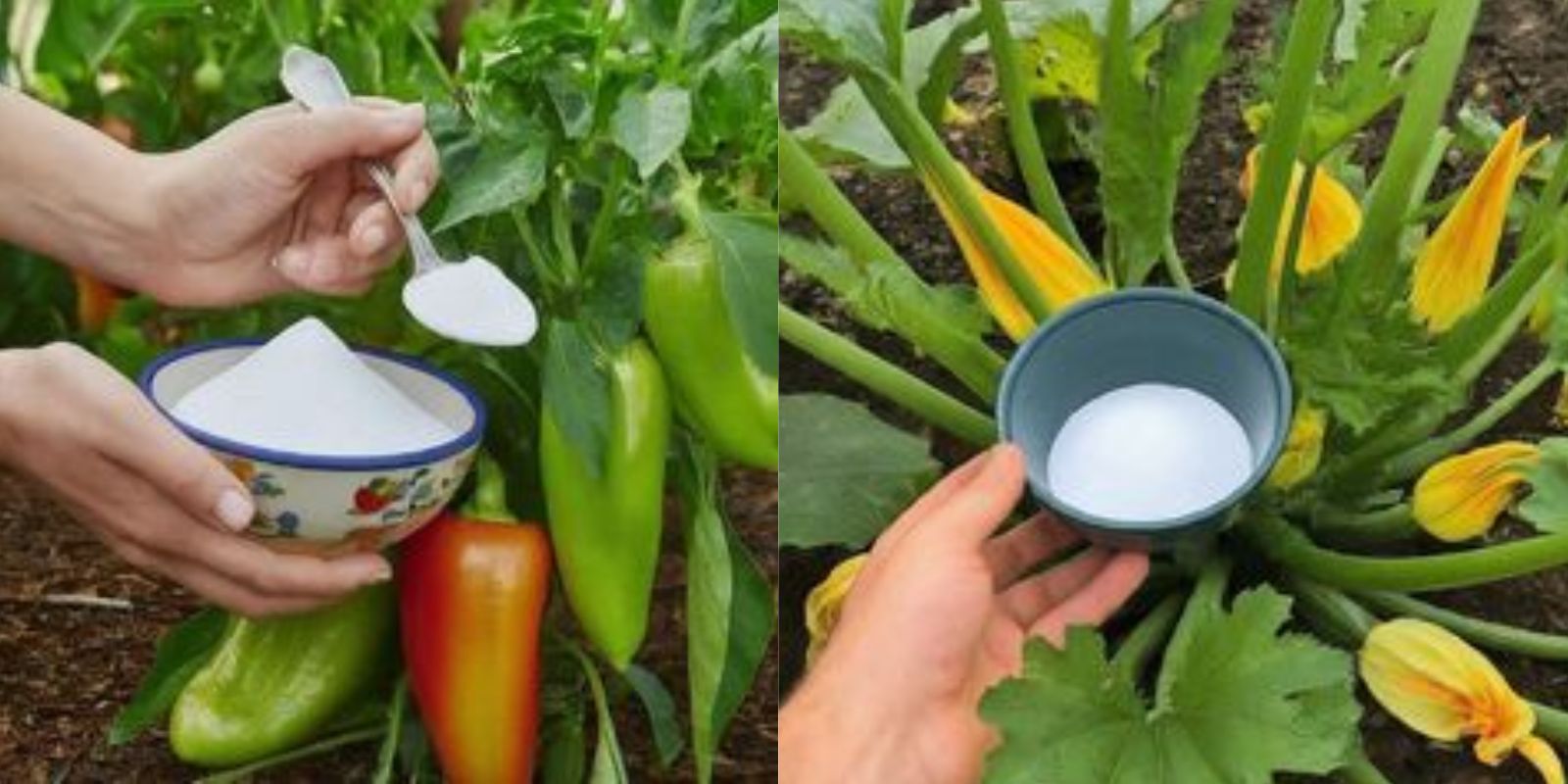Baking soda, commonly known for its versatility in baking and household cleaning, is also an invaluable tool in the garden. Its many benefits go beyond just being a leavening agent; it can assist in pest control, disease management, soil improvement, and more. By integrating baking soda into your gardening practices, you can enhance plant health, manage pests naturally, and improve soil conditions. In this article, we’ll explore ten clever uses for baking soda in the garden and how you can make the most of this everyday ingredient.
Introduction to Baking Soda in Gardening
Baking soda, or sodium bicarbonate, is a simple compound with a wide range of applications. Its effectiveness in gardening is due to its mild alkaline nature, which can influence soil pH, and its ability to act as a natural remedy for various garden issues. Here’s how you can utilize this household staple to create a healthier and more productive garden.
1. Pest Control
Baking Soda for Deterring Pests:
One of the most practical uses of baking soda in the garden is as a pest deterrent. Its fine powder can help manage common pests like ants and slugs.
- For Ants: Sprinkle baking soda around the entry points of ant trails. Ants are deterred by the powder, which interferes with their communication and navigation.
- For Slugs and Snails: Mix baking soda with a little salt and sprinkle it around plants. The mixture’s abrasive quality can help repel these pests without causing harm to your plants.
2. Fungal Treatment
Using Baking Soda as a Natural Fungicide:
Fungal diseases, such as powdery mildew, can wreak havoc on garden plants. Baking soda can be an effective and natural solution to combat these issues.
- Preparation: Mix 1 tablespoon of baking soda with 1 gallon of water. Optionally, add a few drops of liquid soap to help the solution adhere to plant surfaces.
- Application: Spray the mixture onto affected plants, covering both the tops and undersides of leaves. Repeat weekly or after rain to control the spread of the fungus.
3. Soil pH Balance
Adjusting Soil pH with Baking Soda:
Soil pH plays a crucial role in plant health. While baking soda is not a substitute for lime in significantly altering soil pH, it can be useful for minor adjustments.
- Application: If your soil is too acidic, dissolve 1-2 tablespoons of baking soda in a gallon of water and apply it to the soil. Test the soil pH before and after application to monitor changes.
4. Weed Killer
Combatting Weeds with Baking Soda:
Weeds can compete with your plants for nutrients and water. Baking soda can be used to target and manage stubborn weeds.
- Preparation: Combine baking soda with salt and a few drops of dish soap to create a potent weed killer. The salt helps dehydrate weeds, while the soap ensures the solution sticks to their leaves.
- Application: Apply the mixture directly onto the weeds, avoiding contact with desired plants. Be cautious with salt usage, as it can affect soil health if overused.
5. Deodorize Compost
Freshening Compost Piles with Baking Soda:
Compost piles can sometimes develop unpleasant odors. Baking soda can help neutralize these smells and maintain a balanced compost environment.
- Application: Sprinkle a small amount of baking soda over your compost pile. Mix it in to help control odors and improve compost quality.
6. Clean Garden Tools
Restoring Garden Tools with Baking Soda:
Garden tools can accumulate rust and grime over time. Baking soda can be used to clean and restore these tools effectively.
- Preparation: Make a paste using baking soda and a small amount of water.
- Application: Apply the paste to rusty or dirty tools and scrub with a brush. Rinse thoroughly with water and dry the tools to prevent further rusting.
7. Freshen Soil
Improving Soil Freshness with Baking Soda:
Baking soda can help freshen up soil and improve its overall quality.
- Application: Mix a small amount of baking soda into the top layer of soil before planting. This can help reduce any unpleasant odors and contribute to a healthier growing environment.
8. Enhance Plant Growth
Boosting Growth with Baking Soda:
Baking soda can be a beneficial addition to compost or soil, providing additional nutrients to support plant growth.
- Application: Add a small amount of baking soda to your compost pile or soil mix. It can help enhance the soil’s nutritional profile and promote better plant development.
9. Treat Plant Diseases
Managing Plant Diseases with Baking Soda:
In addition to fungal treatment, baking soda can be used to manage other common plant diseases.
- Preparation: Mix 1 tablespoon of baking soda with 1 gallon of water, adding a few drops of liquid soap if desired.
- Application: Spray the solution onto affected plants. For diseases like rust and mildew, regular applications can help control symptoms and prevent further spread.
10. Boost Fertilizer
Enhancing Fertilizer with Baking Soda:
Baking soda can be combined with other fertilizers to provide an extra nutrient boost.
- Preparation: Mix baking soda with your regular fertilizer according to recommended proportions.
- Application: Apply the enhanced fertilizer to your garden beds as usual. The addition of baking soda can help improve plant nutrient uptake and overall health.
Conclusion
Baking soda is a remarkable and versatile tool for gardeners, offering practical solutions for pest control, fungal treatment, soil management, and more. Its natural properties make it an eco-friendly choice for maintaining a healthy garden while reducing reliance on chemical products.
Motivation: Make the most of this everyday ingredient in your garden and unlock its full potential to enhance plant health and productivity! 🌿
By integrating baking soda into your gardening routine, you can tackle various challenges efficiently and sustainably. Embrace these clever uses of baking soda and enjoy a thriving garden with less effort and environmental impact.

